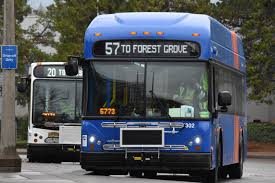TriMet's Expansion to Zero-Emission Fleet in Portland
Key Ideas
- TriMet in Portland is set to introduce 24 battery electric buses in 2024, enhancing sustainability in public transportation.
- These U.S.-made e-buses from GILLIG feature advanced lithium-ion battery packs and increased range, marking a significant step towards zero emissions.
- The addition of 24 charging stations and plans for hydrogen fuel cell electric buses demonstrate TriMet's commitment to a fully zero-emissions bus fleet by 2040.
- Federal grants totaling $64 million will support the procurement of new buses and necessary infrastructure upgrades for a sustainable transport network.
TriMet in Portland, Oregon, is making significant strides in expanding its zero-emission bus fleet. The addition of 24 battery electric buses from GILLIG on Line 9-Powell represents a commitment to sustainable public transportation. These buses, equipped with six lithium-ion battery packs and an extended range, aim to enhance operational efficiency. The incorporation of 24 charging stations at the Powell Facility reflects TriMet's dedication to supporting electric bus operations. Furthermore, plans to introduce 14 hydrogen fuel cell electric buses along the 82nd Avenue corridor by the end of the decade showcase TriMet's forward-thinking approach. Federal grants totaling $64 million will facilitate the transition to a more sustainable bus fleet, including infrastructure upgrades and training programs. The move towards zero-emission buses aligns with TriMet's goal to achieve a fully electric fleet by 2040, signifying a positive step towards environmental sustainability and enhanced public transportation in the Portland metropolitan area.
Topics
Public Transit
Infrastructure
Sustainability
Urban Development
Electric Buses
Public Transportation
Federal Grants
Latest News
